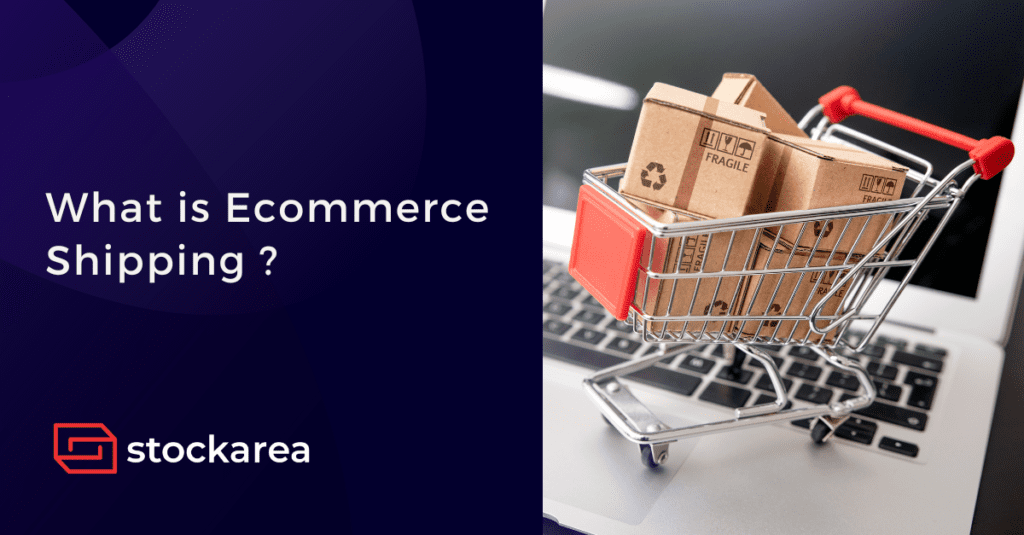E-commerce shipping refers to the shipping services used by online retailers to make transporting their products more feasible and economical. In a time when online shopping is becoming increasingly popular, and companies are competing to give the best online shopping experience at the lowest cost, eCommerce shipping has taken on a variety of meanings.
Large retailers like Amazon and Walmart have made online shopping faster and more affordable than ever, intensifying competition in the shipping sector. As the business grows and attracts more consumers, there’ll be a need to find faster, cheaper, and more effective shipping options to stay up with demand and exceed customer expectations.
Importance of Ecommerce Shipping for Business
For a business owner, a customer’s experience with a brand can create or damage the connection and have an effect on sales. While the majority of clients’ experience can be regulated, after the product is shipped, a significant portion of customer relationship is outsourced to whichever company is entrusted with the delivery of eCommerce orders. If the package arrives late or damaged, you may never get a second chance to make a good first impression.
One would like to conduct business with a trustworthy courier company, but shipping charges can significantly influence the bottom line due to the time and money they require. In addition, high shipping prices can discourage buyers from completing their purchases.
As e-commerce gains in popularity, the necessity of shipping is being recognised as a crucial factor for enhancing the business as a whole and maximising profits. Almost all e-commerce enterprises, from the largest to the smallest and medium-sized, strive to deliver a seamless shipping experience.
How to utilise the right shipping strategies?
As an e-commerce business owner, one must employ the most effective shipping techniques for brand promotion and visibility. Whether a company operate its shipping infrastructure or outsource it to a third-party courier service, one must maintain its commitment to the consumer.
One must choose an economical and cost-effective shipping company depending on your business objectives. The objective is to maximise reach and reception while minimising costs. In addition, one must have a sophisticated system for tracking their goods to ensure their timely delivery to the consumer. Numerous automated shipping methods trace shipments from their origin to their final destination.
1. Free in-store pickup.
Free in-store pickup could be advantageous for both the company and the consumers if they have multiple brick-and-mortar sites or a robust local presence. Customers can avoid the wait for delivery and associated costs and ecommerce business is exempt from transporting packages.
2. Live rates.
Obtaining live, real-time rates from courier carriers will typically result in the lowest available rates increasing customer satisfaction. This helps you choose the right courier partner based on the service quality and deliver your products in the most economical way.
3. Same-day delivery.
Same-day delivery is precisely what it sounds like, but it is significantly more challenging to implement than it is to explain. Same-day delivery requires a highly efficient logistics operation and plenty of resources in order to successfully serve clients. However, unless the company conduct purely local business, this technique should not be the first choice. Two-day or overnight shipping may be a little more attainable objective.
4. Free shipping.
Free shipping has become a standard expectation for many consumers, as it solves a dual purpose of meeting customer expectations as well as positively influences conversion rates for customers that reach the checkout funnel.
However, while free delivery is complimentary for the customers, it is not gratis for the company, and therefore they must still pay the carrier and ensure that their margins are sufficient to cover the associated expenses.
How to Make Ecommerce Shipping a Competitive Advantage
A company can only obtain a competitive advantage if it performs its strategically vital operations (designing, producing, marketing, delivering, and supporting its product) more cheaply or more effectively than its competitors. Under Ecommerce shipping, logistics management has the potential to aid the company in achieving both a cost/productivity and a value advantage. The principle underlying the logistics concept is that of planning and controlling the movement of materials from source to the user as an integrated system rather than managing the flow of commodities as a series of isolated tasks. Thus, a efficient Ecommerce Shipping process aims to combine the marketplace, distribute network, manufacture process, and procurement activity.
Related posts
- How To Start Ecommerce Business In India
- What Is An Online Marketplace?
- What Is Dropshipping?
- Amazon FBA : Complete Beginners Guide
- 7 Pro Tips To Increase Amazon Sales
- 7 Proven Ways To Boost Flipkart Sales
- Getting Started as a Flipkart Seller: A Comprehensive Guide
- Top 11 E-commerce Fulfillment Companies In India
- How To Sell On Meesho? Ultimate Guide For Beginners
- 9 Benefits Of Omnichannel For Your Business
- How to Choose the Right E-commerce Fulfilment Partner for Your Business
- Walmart Supply Chain Management Analysis
- Top 10 E-commerce Fulfillment Companies In Kolkata
